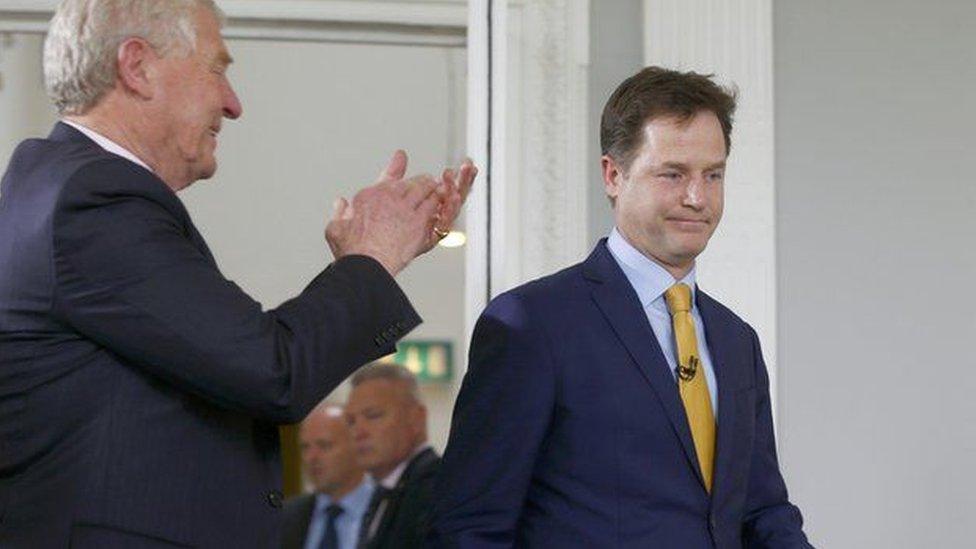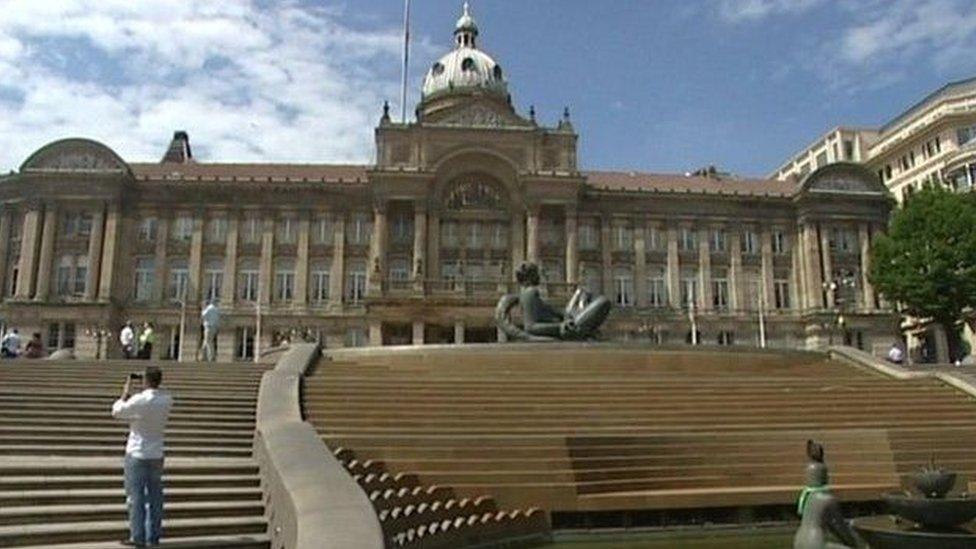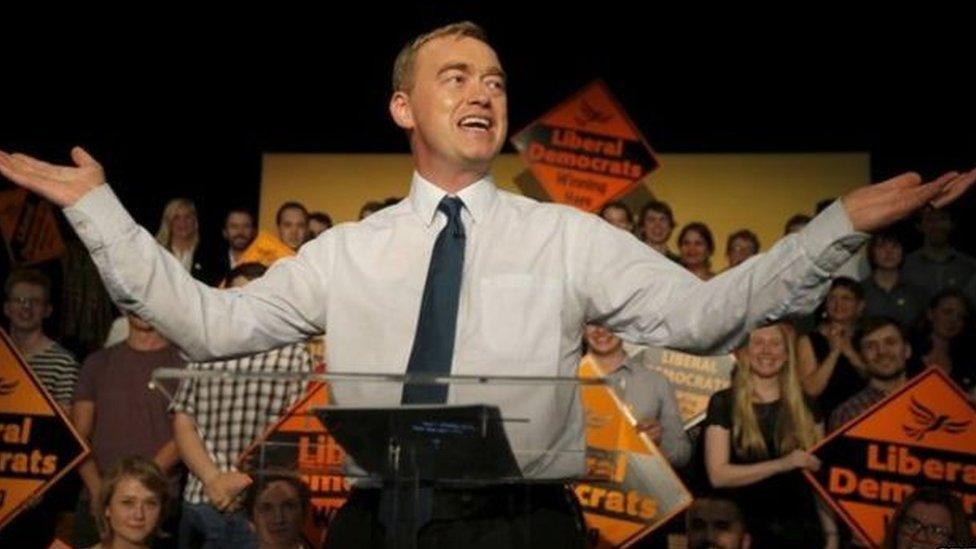The Midlands is a power vacuum for Liberal Democrats
- Published
- comments

Nick Clegg travelled to London to resign as leader of the Lib Dems after the 2015 general election results
Deja Vu?
Picture the scene. After a period of Conservative-Liberal coalition government, the two parties go their separate ways. The Liberals' fortunes decline so sharply it takes half a century for the third party to rebuild itself into a credible electoral force.
This, in a nutshell, is what happened after the fall of Lloyd George's government in 1922.
Inevitably there are fears now that it could be a case of 'deja vu all over again' for today's Liberal Democrats, still reeling from their drubbing in May's General Election. The big difference this time round is that it could be even worse for them now than it was then.
The brutal truth is that there is no iron law of politics which decrees that a party falling on hard times is bound to recover, no matter how great its history may have been. Suddenly, the possibility that this really could be the end for the Liberal Democrats is a serious proposition.
Political disappearing act

The eight-year-old Con-LibDem coalition in Birmingham was ended by Labour
Just a little over three years ago in our part of the country they held high-profile parliamentary seats in Cheltenham, Birmingham Yardley and Solihull. They also had one of the West Midlands' seats in the European Parliament. And, in coalition with the Conservatives, they were the ruling administration on Europe's biggest local authority in Birmingham.
Now suddenly, it's all gone.
Labour swept away the eight-year-old Con-LibDem coalition in Birmingham. The Liberal Democrats no longer have a Midlands seat in the European Parliament. And four months ago, the final indignity. All three parliamentary seats went the same way, Cheltenham and Solihull to the Conservatives and Birmingham Yardley, to Labour.
Their one remaining bastion of power is Cheltenham where they have controlled the council for most of the last 25 years. But with half the authority up for election next May, the Liberal Democrats will be keenly aware they need a rapid improvement in their ratings if they are to entertain serious hopes of retaining control.
The one other glimmer of hope in an otherwise dismal picture for the party is that even during the height of the carnage in the last two years' council elections, Liberal Democrat support held up significantly better in areas of Shropshire and Gloucestershire where they have had genuine power bases before. (Matthew Green was the Liberal Democrat MP for Ludlow 2001-5)

Can new leader Tim Farron inspire support for the Lib Dems in the West Midlands?
So what does this tell us?
Perhaps the lesson is that even while the electorate were turning their backs on the besuited, modern professional party of government defined around the image of Nick Clegg, some vestige of the original, homespun party of open-toed sandals, muesli and pavement politics was clinging on to life.
Could this now offer them their escape route out of the abyss?
That will be among my questions for the party's new leader Tim Farron when I interview him for this week's Sunday Politics, which returns after its summer break at the later time (for one week only) of 1330 on BBC One Midlands this Sunday 20 September 2015.
As he prepares to lead his much-diminished party to their annual conference in Bournemouth, it will be fascinating to see if he can drum up some encouragement from this spectre of almost total desolation.